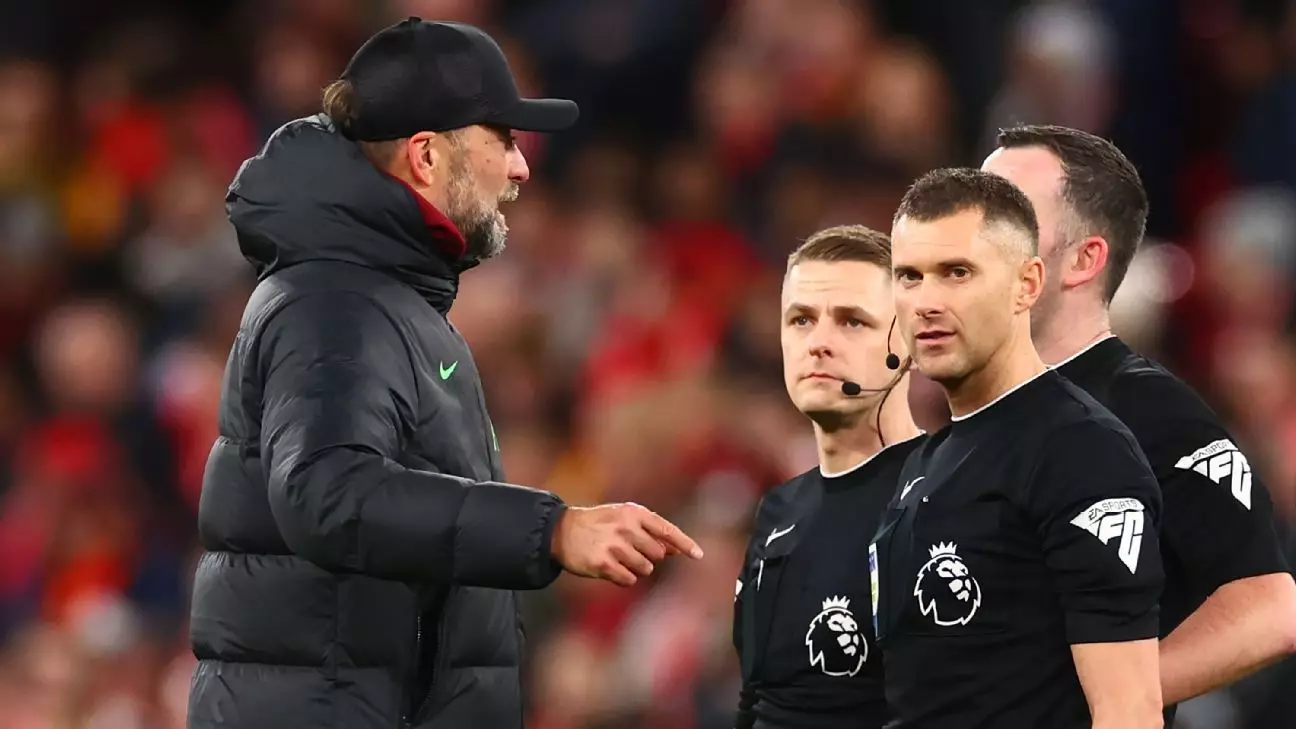Premier League bosses such as Jurgen Klopp, Mauricio Pochettino, and Ange Postecoglou have voiced their opposition to the International Football Association Board’s (IFAB) plan to introduce blue cards in professional football. This trial aims to assess whether temporary dismissals for dissent and tactical offenses can improve player behavior and respect for match officials. However, the blue card element of the sin bin trial has been postponed according to sources. Klopp believes in simplifying officiating for referees and questions the necessity and effectiveness of introducing new elements like blue cards. Similarly, Pochettino and Postecoglou express concerns about the need for such changes and how they may complicate the game further.
Pochettino raises valid concerns about the implementation and application of blue cards in various match situations. He wonders about the interpretation by referees and the potential complexities that could arise from introducing a new card system. Additionally, Klopp, Pochettino, and Postecoglou all question the timing and urgency of bringing in these changes, especially considering the controversies and challenges already posed by VAR. The introduction of blue cards could add unnecessary clutter to the game and potentially disrupt the flow of play.
In contrast, Arsenal manager Mikel Arteta sees the potential benefits of introducing blue cards to simplify decision-making and reduce errors. He acknowledges the difficulties faced by referees in making split-second decisions and believes that any measures to improve the game should be considered. However, Arteta also acknowledges the current challenges facing football, including the implementation of technology, and raises doubts about whether sin bins would truly benefit the sport in the short term.
Real Madrid manager Carlo Ancelotti expresses skepticism towards the use of blue cards, believing that they would only complicate the rules further. He emphasizes the importance of simplifying the game and questions whether introducing blue cards would actually make the referee’s job easier. Ancelotti’s concerns align with the sentiments shared by Klopp, Pochettino, and Postecoglou regarding the unnecessary complexities that could arise from such changes.
Sin bins have been in place in lower levels of football since the 2019-20 season, showing some success in curbing disrespect towards officials. However, the trial for blue cards at the professional level has been delayed, with plans to assess its effectiveness over the next few seasons. The IFAB aims to make the decision clearer for players, coaches, and supporters, but the reluctance from top-level managers raises important questions about the necessity and impact of introducing such changes.
Overall, the debate surrounding the introduction of blue cards in football reflects the ongoing tensions between tradition and innovation in the sport. While some managers see potential benefits in simplifying decision-making and improving player behavior, others are wary of the added complexities and uncertainties that may arise. As football continues to evolve, finding the right balance between tradition and progress will be crucial in shaping the future of the game.

Leave a Reply